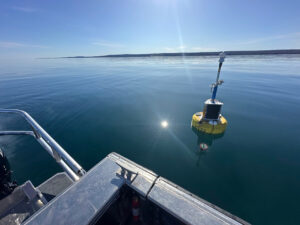Extech MG500 Digital High Voltage Insulation Tester
The Extech Digital Insulation Tester will measure insulation resistance from 800k ohms to 500G ohms.
Features
- EnerSave™ limits test duration to 10 seconds to save energy
- Designed inside a rugged hard case and includes heavy duty test leads and alligator clips
- Warning of external voltage presence (>500VAC or VDC)
- Free ground shipping
- Expedited repair and warranty service
- Lifetime technical support
- More
This Digital Insulation Resistance Tester will measure insulation resistance from 800k ohms to 500G ohms using dynamic auto-ranging technology. Test voltages range from 500V to 10kV in 500 volt steps. It also employs an auto-discharge utility: upon completion of a test, the instrument will automatically discharge all capacitive and inductive circuits charged by the tester. The discharge can be observed on the instrument's bargraph display.
When the instrument is first powred on, a test circuit applies a heavy current draw on the batteries for a few seconds and measures the voltage in order to determine the capacity of the battreries. A bar graph displays the voltage that is stressing the insulation during the first 30 seconds of a test and during the discharge of the circuits at the end of the test. The display will also show the elapsed time from the start of the test and the total time, even after the testing has stopped.
- Insulation Resistance: 800kΩ to 500GΩ ( Autoranging )
- Resolution: 1kΩ
- Basic Accuracy: ±5%
- Test Voltages: 500VDC to 10kVDC (adjustable in 500V steps)
- Preset Buttons: 1kV, 2.5kV, 5kV, 10kV
- Polarization Index: Yes
- Dielectic Absorption Ratio: Yes
- Voltage Output Warning: Yes
- Automatic Discharge: Yes
- Dimensions: 13x10.2x6.3" (330x260x160mm)
- Weight: 7.9lbs (3.6kg)
- (1) Heavy duty carrying case with cover
- (1) Test leads
- (1) Alligator clips
- (8) C batteries
In The News
Save our Bogs! Culture, Conservation and Climate Action in Ireland’s Peatlands
Characterized by long-term accumulation under waterlogged conditions, peatlands exist on every continent and account for 3-4% of the global land surface . Small but mighty, these often overlooked wetland environments are estimated to hold as much as one-third of the world's organic carbon in their soil—twice the amount found in the entirety of the Earth's forest biomass. While healthy peatlands can trap and store carbon, regulate water, and provide important habitats for rare species, human alteration has disturbed peatland carbon and nitrogen cycles on a global scale. Approximately 12% of the world’s peatlands have been drained and degraded through conversion for agriculture, forestry, infrastructure development, and other uses.
Read MoreSargassum Surge: How Seaweed is Transforming our Oceans and Coastal Ecosystems
Until recently, Sargassum –a free-floating seaweed–was distributed throughout the Sargasso Sea , the north Caribbean Sea, and the Gulf of Mexico. But in the space of a decade, this seaweed has, as one scientist remarks , “Gone from a nonfactor to the source of a terrible crisis.” Driven by climate change, anomalous North Atlantic Oscillation in 2009-2010 and a glut of anthropogenic pollutants, sargassum has proliferated. Seasonally recurrent mats as deep as 7m now bloom in the “Great Atlantic Sargassum Belt” (GASB), which covers areas of the Atlantic from West Africa to the Caribbean Sea and Gulf of Mexico. Every year, millions of tons wash up along the shores of more than 30 countries . Dr.
Read MoreGreat Lakes Research Center: Designing Targeted Monitoring Solutions
According to the National Oceanic and Atmospheric Administration ( NOAA ), the Great Lakes have more miles of coastline than the contiguous Atlantic and Pacific coasts combined and contain 20 percent of the world's freshwater, making it a critical region to protect and conserve. Continuous monitoring and data-informed resource management are key components of managing waters in the region. Hayden Henderson, a research engineer with the Great Lakes Research Center (GLRC), designs and deploys monitoring platforms throughout the Great Lakes. With a background in environmental engineering, Henderson enjoyed the challenge of creating systems and making them work to obtain difficult, remote measurements.
Read More






